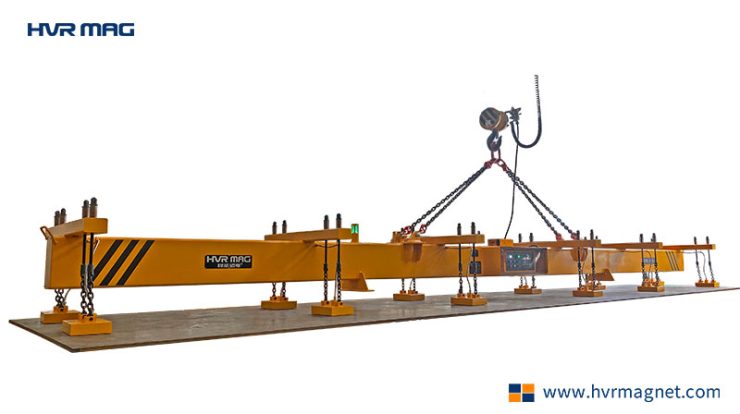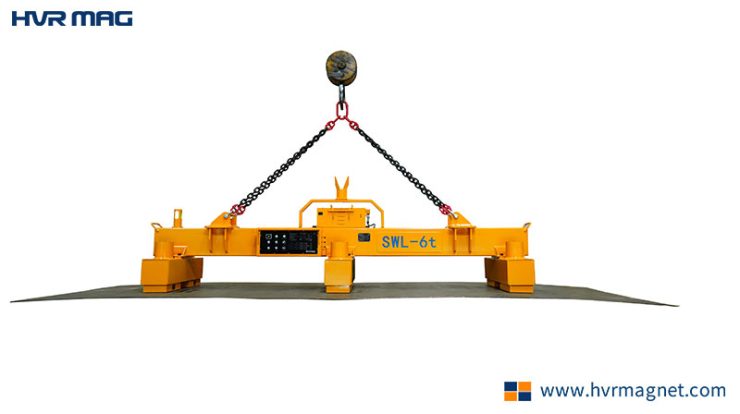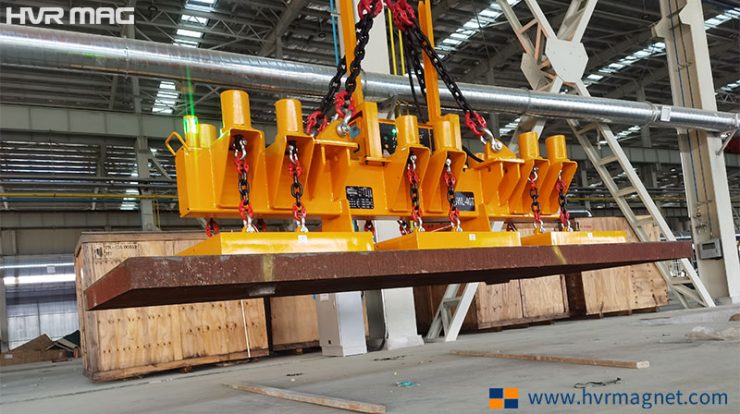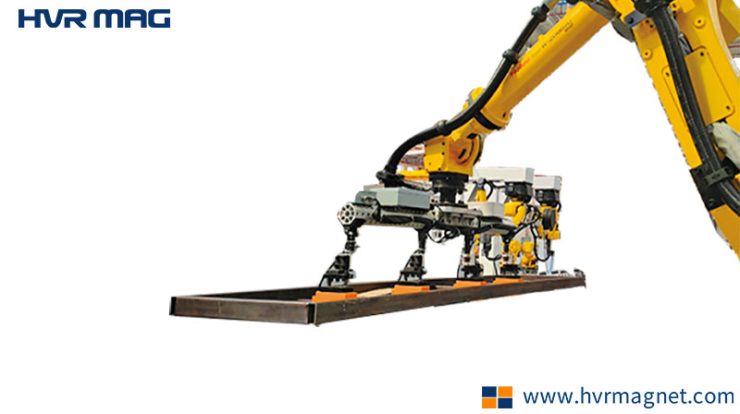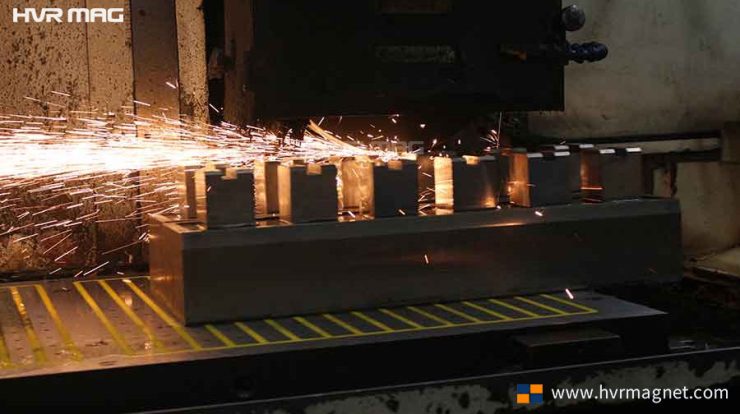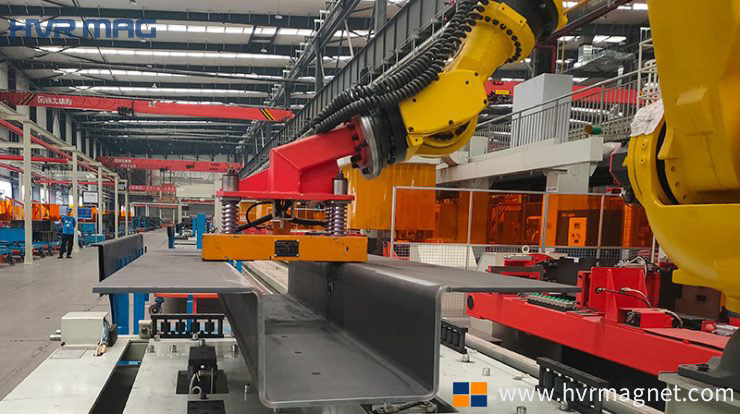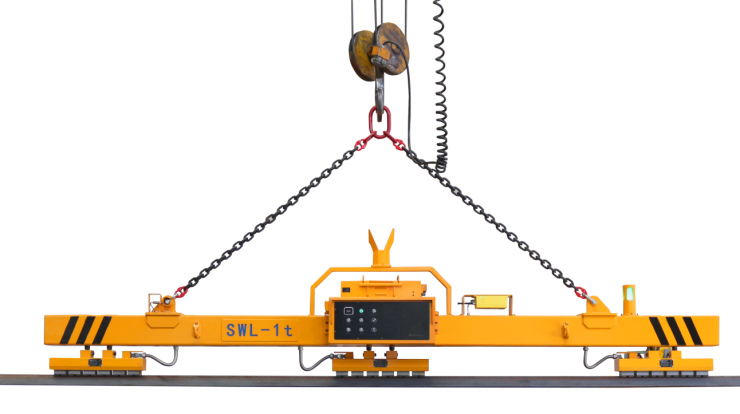
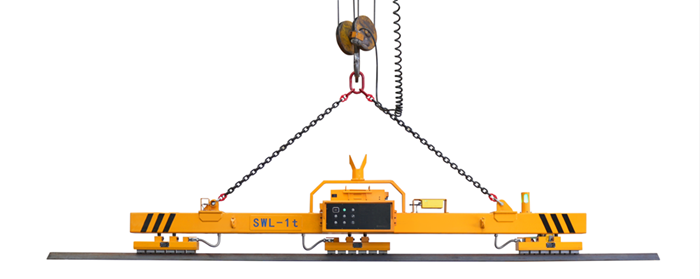
How can we lift the objects with an electro-permanent magnetic lifter in a high-temperature condition? As we all know, magnets perform better in cold environments than in hot environments. Extreme heat typically leads to a loss of magnetic strength. If the ambient temperature goes above a certain point, called the maximum operating temperature, the magnet may permanently lose some of its strength. If it is further heated, it will lose more strength, and if it is heated to its Curie temperature, it will effectively lose all magnetic strength. Maximum operating temperature and Curie temperature are determined by the material a particular magnet is made of and the size and shape of the magnet.
The electro-permanent magnet is made of AINiCo and NdFeB. What are their heat resistance properties?
1.AlNiCo Magnet
It is an alloy composed of aluminum, nickel, cobalt, iron, and other trace metals. The casting process can be made into different sizes and shapes, with good workability. Casting Al-Ni-Co permanent magnets with high-strength magnets have the lowest reversible temperature coefficient and can operate at temperatures up to 600 degrees Celsius. Alnico magnets can offer unparalleled high heat performance when compared to other available magnet grades. Alnico magnets are ideal for high heat applications due to the unique crystalline bonding between aluminum, nickel, and cobalt and the length-to-diameter ratios achieved during manufacture.
2.Neodymium magnet
Neodymium magnets are available for standard temperature and high-temperature applications. Standard temperature neodymium magnets will begin to lose strength if they are heated above their maximum operating temperature, which is 180°F (80°C). High-temperature neodymium magnets can safely be used at operating temperatures up to 300° F (149° C). Special grades are also available that can operate over 392°F (200°C). Neodymium magnets lose some of their performance for every degree of temperature rise. Up to 150 °C neodymium magnets are considered to have the best magnetic performance of all permanent magnetic materials.
It is obvious that the electro-permanent magnet can withstand high temperatures, but the maximum temperature cannot be over 180°C. If you need to lift the objects under a 400 °C environment temperature, is it possible? No promlem, HVR can do it for you. Our technical engineer would design a water cooling system. By installing copper tubes around the electro-permanent magnet, the permanent magnet can be rapidly cooled by injecting cold water through an external interface. Maybe you would be confused about whether the internal design affects the suction force of the electro-permanent magnet, our answer is “No”. The Copper tubes do not conduct magnetism, so the suction force is stable.
To learn more about electro-permanent magnetic lifter, or to discuss your project, contact export@hvrmagnet.com for further assistance.

